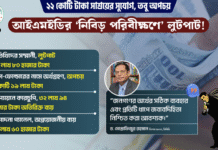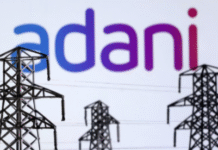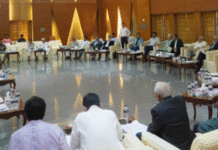English, maths drag results down again

The Secondary School Certificate (SSC) results suffered a fall in success rate for the second consecutive year owing to the students’ poor performance in English and Mathematics.
The fall in success rates wasn’t the only negative thing this time around as this year’s exams were marred by widespread allegations of question leaks.
The pass percentage of the SSC exams under the eight education boards came down to 79.40 percent, dipping 1.82 percentage points from last year’s, according to the results published yesterday.
This is the lowest pass rate in the last eight years.
Rajshahi board again topped the charts in terms of success rate with 86.07 percent.
Although the number of students who had failed increased, the number of schools with 100 percent pass rate decreased and the number of institutions with zero pass rate rose.
The number of students under eight boards achieving the highest grade — GPA (Grade Point Average)-5 — increased to 1,02,845 this year from 97,964 last year.
The combined pass rate of all the 10 education boards, including Dakhil examinations under the madrasa board and SSC vocational examinations under the technical board, also declined to 77.77 percent from 80.35 percent last year.
Girls fared better than boys in terms of success rate.
The number of GPA-5 achievers in the 10 boards rose to 1,10,629 from last year’s 1,04,761.
Although the pass rate across all boards dropped, the result in Comilla Board saw a tremendous boost with 80.40 percent students passing compared to last year’s 59.03 percent. The board’s results had been showing a downslide for the last two years and a steep fall last year pushed down the overall success rate.

Education Minister Nurul Islam Nahid blamed the introduction of the evaluation method of the answer scripts last year as one of the reasons behind the drop in the pass rate.
“It [the new method] might have some impact on the results. But it is not the only reason,” he said while announcing the results at a packed press conference at his ministry at 1:00pm yesterday.
He said the government introduced the method following a research conducted by the Bangladesh Examination Development Unit (BEDU) on the existing evaluation system.
“Many teachers did not check answer scripts seriously. We introduced the method for proper evaluation and to bring equality in numbering,” Nahid said.
“But we will try to find out the reasons behind the fall in result.”
As per the new evaluation method, the government trained chief examiners, who later trained other examiners following a strict guideline. The chief examiners, along with other teachers, set model answers to the SSC questions and forwarded them to the examiners. The examiners checked the answer scripts thinking that the model answers were the standard answers.
Despite the fall, the minister found some positives in the results, including the rise in the number of GPA-5 achievers, increase in the number of science students and better results of the girls.
Asked whether the question leak had an impact on the results, he rejected it outright.
“There is no impact of question paper leak on the results,” Nahid claimed.
The examinations, held in February, were marred by widespread allegations of question leak that drew fierce criticisms. The government probe committee found question papers of “Kha” set of multiple choice questions (MCQ) of 12 out of 17 subjects leaked, but the education ministry decided not to retake the exams as “an insignificant number (4000 to 5000)” of students benefited from the disclosure.

Asked what action the government would take against the students who benefitted from the leaks, Nahid said none would be spared.
The pass rates in several public examinations have been witnessing a gradual rise in the last several years but simultaneously there have been questions about the quality of education. Many even alleged the examiners might have been instructed to check the answer scripts “more liberally”.
When queried on this issue Nahid said, “No, there is no role of it here. Proper evaluation of answer sheet is the reason behind it.”
POOR PERFORMANCE IN ENGLISH AND MATHEMATICS
The poor performance of students in English and maths — two key subjects that always make a difference in the pass rate — pushed down the overall success rate.
Analysing the data provided by the boards, it was found that there was a significant fall in the pass rate in these two subjects across all boards. Only the students of Comilla Board did well in the subjects while students of Barisal did well in maths.
For Dhaka Board, the success rate in English came down to 91.18 percent from last year’s 95.46 percent. Similarly, in mathematics the pass rate dropped to 87.76 from 90.40.
The pass rates in English and Mathematics in Jessore Board registered a fall of 5.67 and 4.19 percentage points respectively, according to the data provided by the boards.
The students under Sylhet Board performed poorly in maths as its pass rate dramatically dipped by 14.58 percentage points from last year’s 91.19 percent. The success rate in English in this board declined to 90.45 percent from 95.26 percent.
An official of Dhaka Board blamed poor performance in these two subjects for the fall.
“These two subjects have always been considered the major factors in the result chart. But many students flunked them, pushing down the tally of total passed students,” he said, wishing anonymity.
“We don’t have quality teachers in these subjects in many schools in the rural areas. Although the teachers are being given training, we need to give rigorous training to them,” he said.
Asked about the poor results in mathematics and English even after taking up of projects, the education minister said they can introduce Secondary Education Quality and Access Enhancement Project (SEQAEP) in only 250 upazilas with half the country still out of its purview.
“Where the project was implemented, students performed well in English and mathematics,” he claimed.
SURPRISING RESULTS IN COMILLA BOARD
After a significant fall in the results for two previous years, Comilla Board seemed to have turned around with a rise in the pass rate reaching 21.37 percentage points, making it the third most successful board.
Contacted, Professor Abdus Salam, secretary of the board said, “We were strict about the instructions of the ministry and did not allow those students who failed in the test examinations especially in English and maths.”
JUBILATIONS
Schools across the country wore a festive look ahead of the results yesterday. Students and their parents, with frayed nerves, erupted in jubilation as soon as they received the results.
Some danced while others took selfies flashing the V-sign. A feeling of sheer happiness was writ large on their faces. However, there were some gloomy faces as well.
“My hard work finally paid off. I want to give all the credit to my teachers and parents,” said Adity Halder, an examinee from Monipur High School and College, who got GPA-5.
More than 20,26,574 students — 10,22,320 boys and 10,04,254 girls — from 28,558 institutions across the country took this year’s SSC and its equivalent examinations under the 10 boards. Of them, 17,81,962 students passed the tests that began on February 1.
Of the 450 Bangladeshi students who sat for the tests under eight foreign centres, 422 passed making the pass rate 93.78. Ninety of them got GPA-5.
This year, some 1,574 institutions saw a 100 percent pass rate against last year’s 2,266. No students passed from 109 institutions, a jump from 93 last year.
Such successes, however, lead to a concern for many students as they would now have to face stiff competition to get enrolled in good colleges.
GIRLS DID BETTER
Girls again fared better than boys in the SCC exams. The pass rate of the girls was 1.95 percentage points higher than that of the boys across all 10 educational boards.
The pass rates of the girls and the boys were 80.35 and 78.40 percents.
However, in terms of GPA-5, boys were slightly ahead of girls. A total of 55,701 boys and 54,928 girls secured the highest grade.
As usual, students from the science group produced the best pass rate of 93.07 percent, followed by 80.91 percent from business studies and only 69 percent from the humanities groups.
MADRASA AND TECHNICAL BOARDS
Madrasa and technical boards saw a drop in this year’s success rate. However, the number of GPA-5 achievers rose.
The pass rate in Madrasa board came down to 70.89 percent from last year’s 76.20 percent. A total 3,371 students secured GPA-5 this year. The number was 2,610 last year.
Some 2.03 lakh out of 2.86 lakh successfully completed their Dakhil examinations.
Under the Technical board, 1.15 lakh students took part in SSC (vocational) and Dakhil (vocational) exams. The pass rate was 71.96 percent against last year’s 78.69 percent. A total of 4,413 students got GPA-5 this year. Some 4,187 got the highest grade last year.
Source: The Daily Star.









